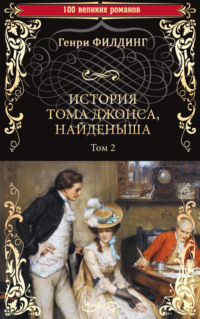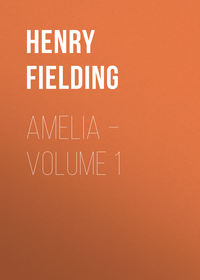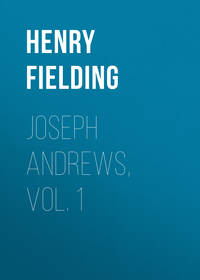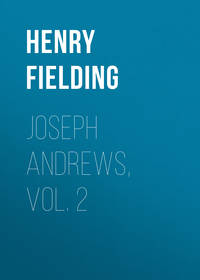 полная версия
полная версияThe Works of Henry Fielding, vol. 12

Henry Fielding
The Works of Henry Fielding, vol. 12
THE AUTHOR'S FARCE, ACTS I. AND II
PERSONS IN THE FARCE
MENLuckless, the Author and Master of the Show, … Mr MULLART. Witmore, his friend … Mr LACY.
Marplay, sen., Comedian … Mr REYNOLDS, Marplay, jun., Comedian … Mr STOPLER. Bookweight, a Bookseller … Mr JONES. Scarecrow, Scribbler … Mr MARSHAL, Dash, " " … Mr HALLAM, Quibble, " " … Mr DOVE, Blotpage, " " … Mr WELLS, jun. Index … – .
Jack, servant to Luckless … Mr ACHURCH. Jack-Pudding … Mr REYNOLDS. Bantomite … Mr MARSHAL.
WOMENMrs Moneywood, the Author's Landlady … Mrs MULLART. Harriot, her daughter. … Miss PALMS.
ACT I
SCENE I. – LUCKLESS's Room in Mrs MONEYWOOD'S House. – Mrs MONEYWOOD, HARRIOT, LUCKLESS
Moneywood. Never tell me, Mr Luckless, of your play, and your play. I tell you I must be paid. I would no more depend on a benefit-night of an unacted play than I would on a benefit-ticket in an undrawn lottery. Could I have guessed that I had a poet in my house! Could I have looked for a poet under laced clothes!
Luck. Why not? since you may often find poverty under them: nay, they are commonly the signs of it. And, therefore, why may not a poet be seen in them as well as a courtier?
Money. Do you make a jest of my misfortune, sir?
Luck. Rather my misfortune. I am sure I have a better title to poverty than you; for, notwithstanding the handsome figure I make, unless you are so good to invite me, I am afraid I shall scarce prevail on my stomach to dine to-day.
Money. Oh, never fear that – you will never want a dinner till you have dined at all the eating-houses round. – No one shuts their doors against you the first time; and I think you are so kind, seldom to trouble them a second.
Luck. No. – And if you will give me leave to walk out of your doors, the devil take me if ever I come into 'em again,
Money. Pay me, sir, what you owe me, and walk away whenever you please.
Luck. With all my heart, madam; get me a pen and ink, and I'll give you my note for it immediately.
Money. Your note! who will discount it? Not your bookseller; for he has as many of your notes as he has of your works; both good lasting ware, and which are never likely to go out of his shop and his scrutore.
Har. Nay, but, madam, 'tis barbarous to insult him in this manner.
Money. No doubt you'll take his part. Pray get you about your business. I suppose he intends to pay me by ruining you. Get you in this instant: and remember, if ever I see you with him again I'll turn you out of doors.
SCENE II – LUCKLESS, Mrs MONEYWOOD
Luck. Discharge all your ill-nature on me, madam, but spare poor Miss Harriot.
Money. Oh! then it is plain. I have suspected your familiarity a long while. You are a base man. Is it not enough to stay three months in my house without paying me a farthing, but you must ruin my child?
Luck. I love her as my soul. Had I the world I'd give it her all.
Money. But, as you happen to have nothing in the world, I desire you would have nothing to say to her. I suppose you would have settled all your castles in the air. Oh! I wish you had lived in one of them, instead of my house. Well, I am resolved, when you have gone away (which I heartily hope will be very soon) I'll hang over my door in great red letters, "No lodgings for poets." Sure never was such a guest as you have been. My floor is all spoiled with ink, my windows with verses, and my door has been almost beat down with duns.
Luck. Would your house had been beaten down, and everything but my dear Harriot crushed under it!
Money. Sir, sir —
Luck. Madam, madam! I will attack you at your own weapons; I will pay you in your own coin.
Money. I wish you'd pay me in any coin, sir.
Luck. Look ye, madam, I'll do as much as a reasonable woman can require; I'll shew you all I have; and give you all I have too, if you please to accept it. [Turns his pockets Inside out.
Money. I will not be used in this manner. No, sir, I will be paid, if there be any such thing as law.
Luck. By what law you will put money into my pocket I know not; for I never heard of any one who got money by the law but the lawyers. I have told you already, and I tell you again, that the first money I get shall be yours; and I have great expectations from my play. In the mean time your staying here can be of no service, and you may possibly drive some line thoughts out of my head. I would write a love scene, and your daughter would be more proper company, on that occasion, than you.
Money. You would act a love-scene, I believe; but I shall prevent you; for I intend to dispose of myself before my daughter.
Luck. Dispose of yourself!
Money. Yes, sir, dispose of myself. 'Tis very well known that I have had very good offers since my last dear husband died. I might have had an attorney of New Inn, or Mr Fillpot, the exciseman; yes, I had my choice of two parsons, or a doctor of physick; and yet I slighted them all; yes, I slighted them for – for – for you.
Luck. For me?
Money. Yes, you have seen too visible marks of my passion; too visible for my reputation. [Sobbing.
Luck. I have heard very loud tokens of your passion; but I rather took it for the passion of anger than of love.
Money. Oh! it was love, indeed. Nothing but love, upon my soul!
Luck. The devil! This way of dunning is worse than the other.
Money. If thou can'st not pay me in money, let me have it in love. If I break through the modesty of my sex let my passion excuse it. I know the world will call it an impudent action; but if you will let me reserve all I have to myself, I will make myself yours for ever.
Luck. Toll, loll, loll!
Money. And is this the manner you receive my declaration, you poor beggarly fellow? You shall repent this; remember, you shall repent it; remember that. I'll shew you the revenge of an injured woman.
Luck. I shall never repent anything that rids me of you, I am sure.
SCENE III. – LUCKLESS, HARRIOT
Luck. Dear Harriot!
Har. I have waited an opportunity to return to you.
Luck. Oh! my dear, I am so sick!
Har. What's the matter?
Luck. Oh! your mother! your mother!
Har. What, has she been scolding ever since?
Luck. Worse, worse!
Har. Heaven forbid she should threaten to go to law with you.
Luck. Oh, worse! worse! she threatens to go to church with me. She has made me a generous offer, that if I will but marry her she will suffer me to settle all she has upon her.
Har. Generous creature! Sure you will not resist the proposal?
Luck. Hum! what would you advise me to?
Har. Oh, take her, take her, by all means; you will be the prettiest, finest, loveliest, sweetest couple. Augh! what a delicate dish of matrimony you will make! Her age with your youth, her avarice with your extravagance, and her scolding with your poetry.
Luck. Nay, but I am serious, and I desire you would be so. You know my unhappy circumstances, and your mother's wealth. It would be at least a prudent match.
Har. Oh! extremely prudent, ha, ha, ha! the world will say, Lard! who could have thought Mr Luckless had had so much prudence? This one action will overbalance all the follies of your life.
Luck. Faith, I think it will: but, dear Harriot, how can I think of losing you for ever? And yet, as our affairs stand, I see no possibility of our being happy together. It will be some pleasure, too, that I may have it in my power to serve you. Believe me, it is with the utmost reluctance I think of parting with you. For if it was in my power to have you —
Har. Oh, I am very much obliged to you; I believe you – Yes, you need not swear, I believe you.
Luck. And can you as easily consult prudence, and part with me? for I would not buy my own happiness at the price of yours.
Har. I thank you, sir – Part with you – intolerable vanity!
Luck. Then I am resolved; and so, my good landlady, have at you.
Har. Stay, sir, let me acquaint you with one thing – you are a villain! and don't think I'm vexed at anything, but that I should have been such a fool as ever to have had a good opinion of you. [Crying.
Luck. Ha, ha, ha! Caught, by Jupiter! And did my dear Harriot think me in earnest?
Har. And was you not in earnest?
Luck. What, to part with thee? A pretty woman will be sooner in earnest to part with her beauty, or a great man with his power.
Har. I wish I were assured of the sincerity of your love.
AIR. Butter'd Pease.
Luck. Does my dearest Harriot askWhat for love I would pursue?Would you, charmer, know what taskI would undertake for you?Ask the bold ambitious, whatHe for honours would atchieve?Or the gay voluptuous, thatWhich he'd not for pleasure give?Ask the miser what he'd doTo amass excessive gain?Or the saint, what he'd pursue,His wish'd heav'n to obtain?These I would attempt, and more —For, oh! my Harriot is to meAll ambition, pleasure, store,Or what heav'n itself can be!Har. Would my dearest Luckless knowWhat his constant Harriot canHer tender love and faith to showFor her dear, her only man?Ask the vain coquette what sheFor men's adoration would;Or from censure to be free,Ask the vile censorious prude.In a coach and six to ride,What the mercenary jade,Or the widow to be brideTo a brisk broad-shoulder'd blade.All these I would attempt for thee,Could I but thy passion fix;Thy will my sole commander be,And thy arms my coach and six.Money. [within]. Harriot, Harriot.
Har. Hear the dreadful summons! adieu. I will take the first opportunity of seeing you again.
Luck. Adieu, my pretty charmer; go thy ways for the first of thy sex.
SCENE IV. – LUCKLESS, JACK
Luck. So! what news bring you?
Jack. An't please your honour I have been at my lord's, and his lordship thanks you for the favour you have offered of reading your play to him; but he has such a prodigious deal of business, he begs to be excused. I have been with Mr Keyber too – he made me no answer at all. Mr Bookweight will be here immediately.
Luck. Jack.
Jack. Sir.
Luck. Fetch my other hat hither; – carry it to the pawnbroker's.
Jack. To your honour's own pawnbroker!
Luck. Ay – and in thy way home call at the cook's shop. So, one way or other, I find my head must always provide for my belly.
SCENE V. – LUCKLESS, WITMORE
Luck. I am surprized! dear Witmore!
Wit. Dear Harry!
Luck. This is kind, indeed; but I do not more wonder at finding a man in this age who can be a friend to adversity, than that Fortune should be so much my friend as to direct you to me; for she is a lady I have not been much indebted to lately.
Wit. She who told me, I assure you, is one you have been indebted to a long while.
Luck. Whom do you mean?
Wit. One who complains of your unkindness in not visiting her – Mrs Lovewood.
Luck. Dost thou visit there still, then?
Wit. I throw an idle hour away there sometimes. When I am in an ill-humour I am sure of feeding it there with all the scandal in town, for no bawd is half so diligent in looking after girls with an uncracked maidenhead as she in searching out women with cracked reputations.
Luck. The much more infamous office of the two.
Wit. Thou art still a favourer of the women, I find.
Luck. Ay, the women and the muses – the high roads to beggary.
Wit. What, art thou not cured of scribling yet?
Luck. No, scribling is as impossible to cure as the gout.
Wit. And as sure a sign of poverty as the gout of riches. 'Sdeath! in an age of learning and true politeness, where a man might succeed by his merit, there would be some encouragement. But now, when party and prejudice carry all before them; when learning is decried, wit not understood; when the theatres are puppet-shows, and the comedians ballad-singers; when fools lead the town, would a man think to thrive by his wit? If you must write, write nonsense, write operas, write Hurlothrumbos, set up an oratory and preach nonsense, and you may meet with encouragement enough. Be profane, be scurrilous, be immodest: if you would receive applause, deserve to receive sentence at the Old Bailey; and if you would ride in a coach, deserve to ride in a cart.
Luck. You are warm, my friend.
Wit. It is because I am your friend. I cannot bear to hear the man I love ridiculed by fools – by idiots. To hear a fellow who, had he been born a Chinese, had starved for want of genius to have been even the lowest mechanick, toss up his empty noddle with an affected disdain of what he has not understood; and women abusing what they have neither seen nor heard, from an unreasonable prejudice to an honest fellow whom they have not known. If thou wilt write against all these reasons get a patron, be pimp to some worthless man of quality, write panegyricks on him, flatter him with as many virtues as he has vices. Then, perhaps, you will engage his lordship, his lordship engages the town on your side, and then write till your arms ake, sense or nonsense, it will all go down.
Luck. Thou art too satirical on mankind. It is possible to thrive in the world by justifiable means.
Wit. Ay, justifiable, and so they are justifiable by custom. What does the soldier or physician thrive by but slaughter? – the lawyer but by quarrels? – the courtier but by taxes? – the poet but by flattery? I know none that thrive by profiting mankind, but the husbandman and the merchant: the one gives you the fruit of your own soil, the other brings you those from abroad; and yet these are represented as mean and mechanical, and the others as honourable and glorious.
Luck. Well; but prithee leave railing, and tell me what you would advise me to do.
Wit. Do! why thou art a vigorous young fellow, and there are rich widows in town.
Luck. But I am already engaged.
Wit. Why don't you marry then – for I suppose you are not mad enough to have any engagement with a poor mistress?
Luck. Even so, faith; and so heartily that I would not change her for the widow of a Croesus.
Wit. Now thou art undone, indeed. Matrimony clenches ruin beyond retrieval. What unfortunate stars wert thou born under? Was it not enough to follow those nine ragged jades the muses, but you must fasten on some earth-born mistress as poor as them?
Mar. jun. [within]. Order my chairman to call on me at St James's. – No, let them stay.
Wit. Heyday, whom the devil have we here?
Luck. The young captain, sir; no less a person, I assure you.
SCENE VI. – LUCKLESS, WITMORE, MARPLAY, jun
Mar. jun. Mr Luckless, I kiss your hands – Sir, I am your most obedient humble servant; you see, Mr Luckless, what power you have over me. I attend your commands, though several persons of quality have staid at court for me above this hour.
Luck. I am obliged to you – I have a tragedy for your house, Mr Marplay.
Mar. jun. Ha! if you will send it to me, I will give you my opinion of it; and if I can make any alterations in it that will be for its advantage, I will do it freely.
Wit. Alterations, sir?
Mar. jun. Yes, sir, alterations – I will maintain it. Let a play be never so good, without alteration it will do nothing.
Wit. Very odd indeed!
Mar. jun. Did you ever write, sir?
Wit. No, sir, I thank Heaven.
Mar. jun. Oh! your humble servant – your very humble servant, sir. When you write yourself, you will find the necessity of alterations. Why, sir, would you guess that I had altered Shakspeare?
Wit. Yes, faith, sir, no one sooner.
Mar. jun. Alack-a-day! Was you to see the plays when they are brought to us – a parcel of crude undigested stuff. We are the persons, sir, who lick them into form – that mould them into shape. The poet make the play indeed! the colourman might be as well said to make the picture, or the weaver the coat. My father and I, sir, are a couple of poetical tailors. When a play is brought us, we consider it as a tailor does his coat: we cut it, sir – we cut it; and let me tell you we have the exact measure of the town; we know how to fit their taste. The poets, between you and me, are a pack of ignorant —
Wit. Hold, hold, sir. This is not quite so civil to Mr Luckless; besides, as I take it, you have done the town the honour of writing yourself.
Mar. jun. Sir, you are a man of sense, and express yourself well. I did, as you say, once make a small sally into Parnassus – took a sort of flying leap over Helicon; but if ever they catch me there again – sir, the town have a prejudice to my family; for, if any play could have made them ashamed to damn it, mine must. It was all over plot. It would have made half a dozen novels: nor was it crammed with a pack of wit-traps, like Congreve and Wycherly, where every one knows when the joke was coming. I defy the sharpest critick of them all to have known when any jokes of mine were coming. The dialogue was plain, easy, and natural, and not one single joke in it from the beginning to the end: besides, sir, there was one scene of tender melancholy conversation – enough to have melted a heart of stone; and yet they damned it – and they damned themselves; for they shall have no more of mine.
Wit. Take pity on the town, sir.
Mar. jun. I! No, sir, no. I'll write no more. No more; unless I am forced to it.
Luck. That's no easy thing, Marplay.
Mar. jun. Yes, sir. Odes, odes, a man may be obliged to write those, you know.
Luck, and Wit. Ha, ha, ha! that's true indeed.
Luck. But about my tragedy, Mr Marplay.
Mar. jun. I believe my father is at the playhouse: if you please, we will read it now; but I must call on a young lady first – Hey, who's there? Is my footman there? Order my chair to the door. Your servant, gentlemen. —Caro vien. [Exit, singing.
Wit. This is the most finished gentleman I ever saw; and hath not, I dare swear, his equal.
Luck. If he has, here he comes.
SCENE VII. – LUCKLESS, WITMORE, BOOKWEIGHT
Luck. Mr Bookweight, your very humble servant.
Book. I was told, sir, that you had particular business with me.
Luck. Yes, Mr Bookweight; I have something to put into your hands. I have a play for you, Mr Bookweight.
Book. Is it accepted, sir?
Luck. Not yet.
Book. Oh, sir! when it is, it will be then time enough to talk about it. A play, like a bill, is of no value till it is accepted; nor indeed when it is, very often. Besides, sir, our playhouses are grown so plenty, and our actors so scarce, that really plays are become very bad commodities. But pray, sir, do you offer it to the players or the patentees?
Luck. Oh! to the players, certainly.
Book. You are in the right of that. But a play which will do on the stage will not always do for us; there are your acting plays and your reading plays.
Wit. I do not understand that distinction.
Book. Why, sir, your acting play is entirely supported by the merit of the actor; in which case, it signifies very little whether there be any sense in it or no. Now, your reading play is of a different stamp, and must have wit and meaning in it. These latter I call your substantive, as being able to support themselves. The former are your adjective, as what require the buffoonery and gestures of an actor to be joined with them to shew their signification.
Wit. Very learnedly defined, truly.
Luck. Well, but, Mr Bookweight, will you advance fifty guineas on my play?
Book. Fifty guineas! Yes, sir. You shall have them with all my heart, if you will give me security for them. Fifty guineas for a play! Sir, I would not give fifty shillings.
Luck. 'Sdeath, sir! do you beat me down at this rate?
Book. No, nor fifty farthings. Fifty guineas! Indeed your name is well worth that.
Luck. Jack, take this worthy gentleman and kick him down stairs.
Book. Sir, I shall make you repent this.
Jack. Come, sir, will you please to brush?
Book. Help! murder! I'll have the law of you, sir.
Luck. Ha, ha, ha!
SCENE VIII. – LUCKLESS, WITMORE, MRS MONEYWOOD
Money. What noise is this? It is a very fine thing, truly, Mr Luckless, that you will make these uproars in my house.
Luck. If you dislike it, it is in your power to drown a much greater. Do you but speak, madam, and I am sure no one will be heard but yourself.
Money. Very well, indeed! fine reflexions on my character! Sir, sir, all the neighbours know that I have been as quiet a woman as ever lived in the parish. I had no noises in my house till you came. We were the family of love. But you have been a nusance to the whole neighbourhood. While you had money, my doors were thundered at every morning at four and five, by coachmen and chairmen; and since you have had none, my house has been besieged all day by creditors and bailiffs. Then there's the rascal your man; but I will pay the dog, I will scour him. Sir, I am glad you are a witness of his abuses of me.
Wit. I am indeed, madam, a witness how unjustly he has abused you. [JACK whispers LUCKLESS.









